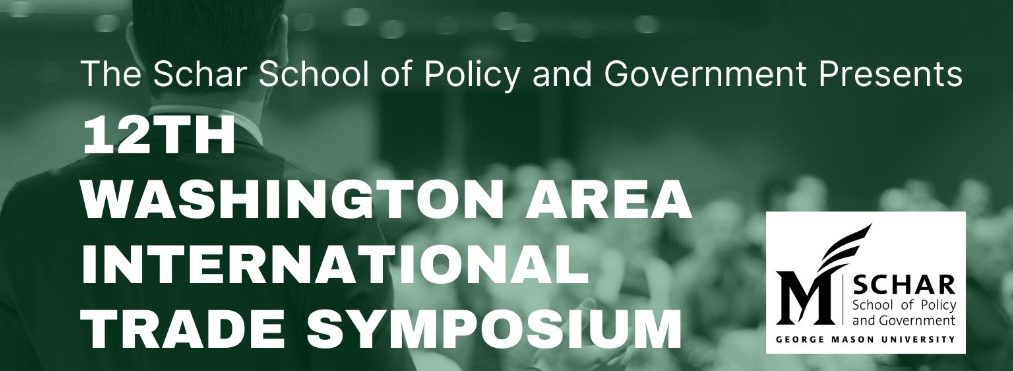Friday, April 21st, 2023,
9:00 am – 7:00pm ET
134 Van Metre Hall Auditorium
George Mason University

Conference Program
08:30-08:55: Breakfast
08:55-09:00: Opening Remarks
Session I: Frictions and Trade
9:00-9:45: Brian Cevallos Fujiy (U.S. Census Bureau), “Cultural Proximity and Production
Networks”
Discussant: Yingyan Zhao (GWU)
9:45-10:30: Christian Volpe (Inter-American Development Bank), “The Value of International
Certifications”
Discussant: Andrew McCallum (Federal Reserve Board)
10:30-11:00: Coffee Break
Session II: Immigration
11:00-11:45: Mine Senses (JHU SAIS), “The Fiscal Impact of Immigration in the United States:
Evidence at the Local Level”
Discussant: Charly Porcher (Georgetown)
11:45-12:30: Michael Clemens (GMU), “The Effect of Low-Skill Immigration Restrictions on US
Firms and Workers: Evidence from a Randomized Lottery”
Discussant: Juan Blyde (Inter-American Development Bank)
12:30-13:15: Lunch
Session III: Trade and Inequality
13:15-14:00: Miguel Acosta (Federal Reserve Board), “The Regressive Nature of the U.S. Tariff
Code: Origins and Implications”
Discussant: Daniel Bernhofen (American)
14:00-14:45: Kara Reynolds (American), “Backlash against Trade in an Unequal World”
Discussant: Cristina Tello-Trillo (U.S. Census Bureau)
14:45-15:15: Coffee Break
Session IV: The Pandemic Trade Shock
15:15-16:00: Ariel Weinberger (GWU), “Surviving Pandemics: The Role of Spillovers”
Discussant: Anne Beck (World Bank)
16:00-16:45: Dhevaki Ghose (World Bank), “Production Networks and Firm-Level Elasticities
of Substitution”
Discussant: Ritam Chauri (JHU SAIS)
16:45-17:30: Ferdinando Monte (Georgetown), “Remote Work and City Structure”
Discussant: Maurice Kugler (GMU)
17:30-18:30: Reception

